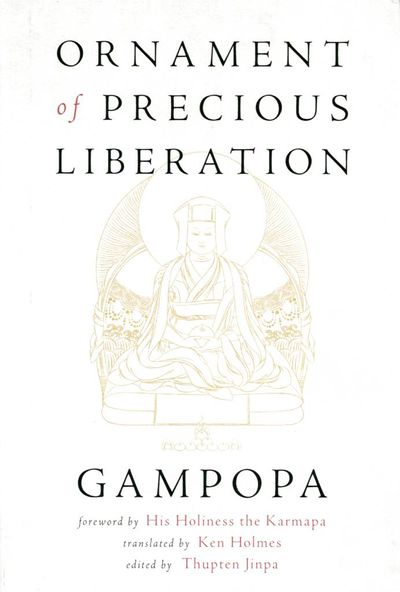Ornament of Precious Liberation (Holmes)
Ornament of Precious Liberation is a spiritual and literary treasure of Tibetan Buddhism and of the Kagyü lineage in particular. Laying out step by step the path to buddhahood that is open to us all, to read Gompopa's text is like receiving the teachings directly from the master himself.
It is a quintessential guide to enlightenment that students will return to again and again for its insights into living an awakened life. (Source: Wisdom Publications)
This publication is an updated version of the translation found in Stages of the Buddha's Teachings: Three Key Texts.
| Citation | Holmes, Ken, trans. Ornament of Precious Liberation. By Gampopa (sgam po pa). Edited by Thupten Jinpa. Somerville, MA: Wisdom Publications, 2017. |
|---|---|
The step-by-step instructions developed in this work continue to guide and elevate the attentive reader and practitioner of Tibetan Buddhism today. Imbued by Gampopa with so much insight and helpful instruction, it is not surprising that this manual was considered a classic of Buddhist literature in Tibet. With this new translation, students and teachers of Tibetan Buddhism will have a chance to directly engage with the insights and instructions of a great spiritual master. For the general reader, it offers an opportunity to appreciate the richness of the Tibetan tradition and its creative synthesis of the vast corpus of classical Indian Buddhist teachings.
- Thupten Jinpa



